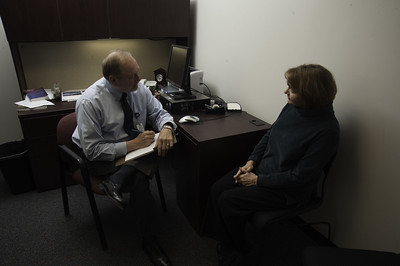Yesterday, I wrote about how tone-deaf Washtenaw Community College’s Master Plan is in light of the pandemic. While no one expected COVID-19, Washtenaw County has always had plenty of low-income residents. (It still does.) The current WCC Master Plan has very little of substance for them. Worse, the Master Plan offers very little for WCC students – current and future.
Case in point: Woodland Community College, northwest of Sacramento, CA, just announced a new program to provide school-based health services to its students. The program, which is a partnership with CommuniCare, will deliver “physical healthcare, behavioral healthcare and related social services” to WCC students.
CommuniCare will provide telehealth, learning opportunities and healthy lifestyle education. California’s Health and Human Services Agency and the Yuba Community College District will fund the two-year program. It will provide physical health services 3.5 days per week, with extended hours in the evenings. It will also provide behavioral health to students 3 days per week.
WCC Master Plan should address student needs
That’s good because a 2016 study by researchers at the University of Michigan and the University of Wisconsin-Madison found that nearly half of community college students show signs of mental health conditions, but fewer than half of affected students receive any mental health services. Students under age 25 are especially likely to have untreated mental health conditions, and their academic performance suffers as a result.
Many young people enroll at community colleges because they do not think they can manage the stress of a four-year university program. Unfortunately, most community colleges don’t provide mental health assistance to their students. This could explain why a higher proportion of students with mental health issues find their way to a community college. It could also explain why 43% of students who enroll at a community college are neither still enrolled nor graduated after eight years.
Finding ways to fund on-campus health services for WCC students could provide much needed health care and improve graduation rates. Better still, it could address untreated mental health conditions that prevent young adults from succeeding in school and at work.
Besides potentially producing better outcomes for people and the community, it’s in line with WCC’s mission. Yet, WCC plans to waste community resources to plant Starbucks and cell phone stores in its parking lot.
During the Great Recession, WCC rejected the offer to take over the Washtenaw Country Club because the optics were bad. But it seems like some in the Administration and on the Board still cling to the country club mentality.
As a reminder: Washtenaw County taxpayers did not build WCC to serve the wealthy or promote real estate development. There is real work to be done at WCC. Unfortunately, the Master Plan addresses none of it.
Photo Credit: Mecklenburg County, via Flickr





























